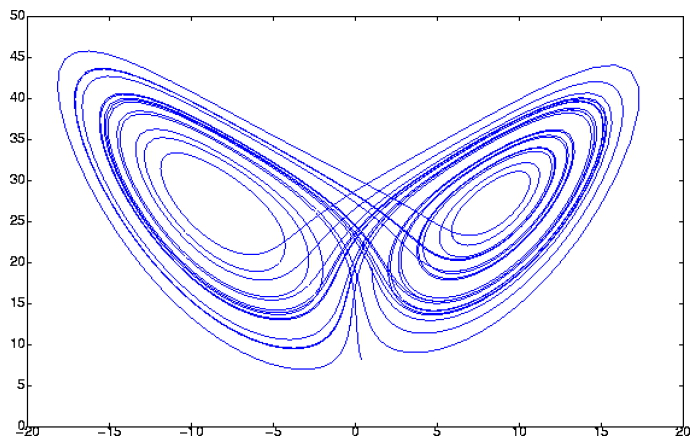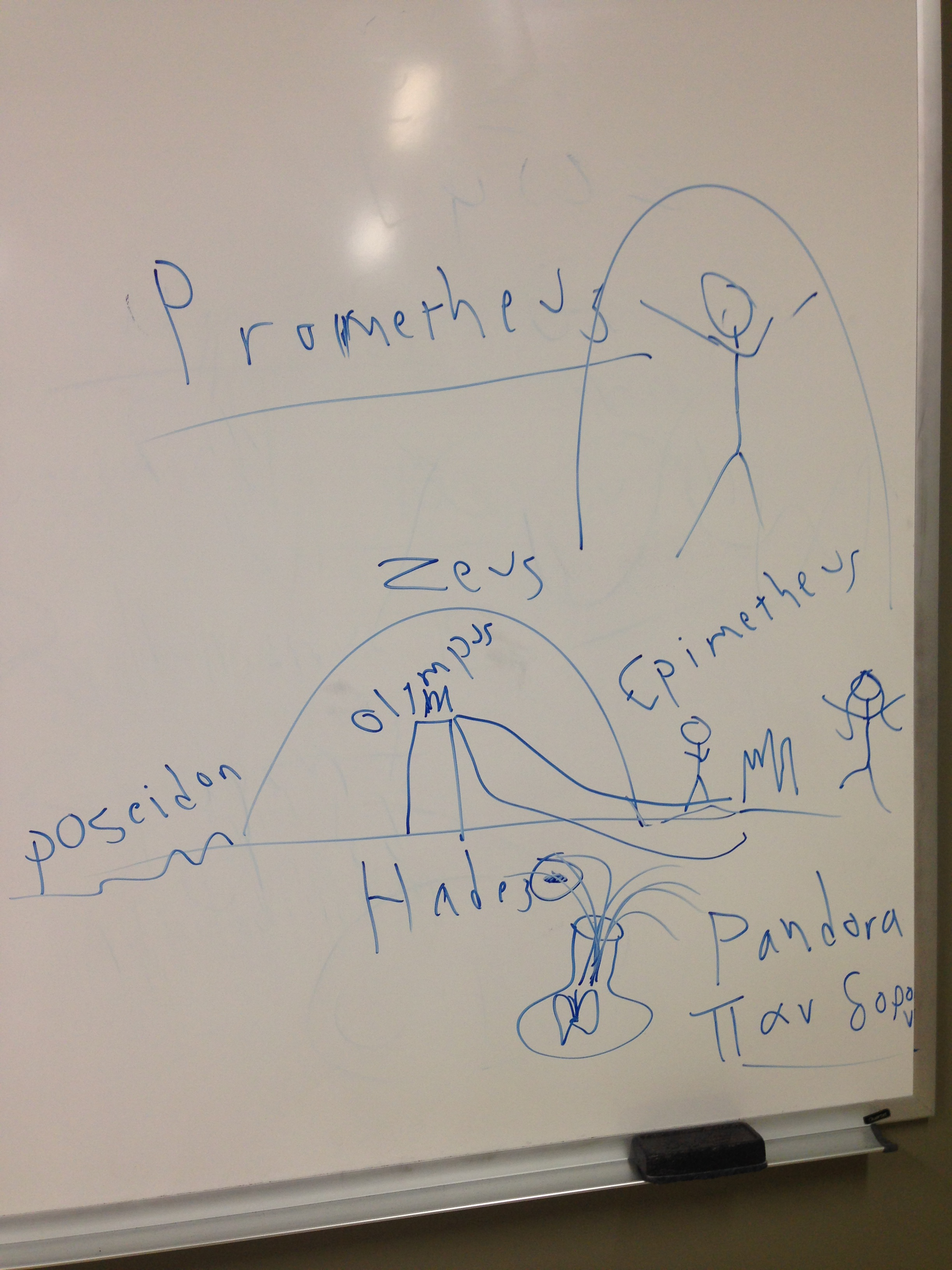 Home Page
Home Page Daniel
Daniel is a new genre in the Hebrew scriptures: apocalyptic. The Greek
word ἀποκαλύπτω (apokaluptō) means to uncover or reveal.
That doesn't really describe what is happening in such
literature. What is new in Daniel compared to the earlier
scriptures is the idea of the cosmic war between good and
evil. This was a concept imported into Judaism from
Manichaeism; earlier scriptures have God firmly in control of
history; now history hangs in the balance in the war between
good and evil, and God's people are under attack because of
their devotion by his enemies. Daniel presents us with several
conflicts between the two sides in this warfare; equally
significant are the various visions that give us insight into
the unseen nature of the universe and the battle that rages
around us.
It's hard to overestimate the importance of Daniel's influence
since it was written. Apocalyptic thought has spread from
Daniel through strains of Judaism, Christianity (which began as
an apocalyptic offshoot of Judaism), Islam, and popular
culture. It pops up almost everywhere in American politics
and culture, from the "Battle Hymn of the Republic" to the
conflict between the light and dark sides of the Force in Star
Wars. A more pernicious influence on American political culture
has been identified by theologian and culture critic Robert
Jewett: he calls it the American monomyth:
A community in a harmonious paradise is threatened by evil: normal institutions fail to contend with this threat: a selfless superhero emerges to renounce temptations and carry out the redemptive task: aided by fate, his decisive victory restores the community to its paradisal condition: the superhero then recedes into obscurity. (Jewett, The American Monomyth xxii)
This is the basic plot struture underlying the classic cowboy
story, as well as pretty much all super-heroes in comic books
and movies. One problem with this system is that is makes
us despise our own institutions because we have a pre-set belief
that they will always fail. Unfortunately, it is also the basis
of much of our foreign policy. The more blindly we follow
the monomyth, the more likely we are to make massive blunders in
geopolitics. Also, our belief that we are somehow by
nature the good guys and the other people are the bad guys
releases us from any need to behave ourselves in the
conflict. For example, in a thousand movies, the cowboy
has a final showdown with the bad guys and then rode off into
the sunset. Under this mythic thinking, we invaded Iraq
and took out Sadaam Hussein under the belief we could then ride
off into the sunset, Iraq would be a stable Middle Eastern
democracy, and we'd all live happily ever after. So how'd
that work out?

The stories of Susanna
and Bel
and the Dragon are another new kind of story: the mystery
or detective story. They are in the version of Daniel that
is the LXX (Septuagint) but not the MT (Masoretic Text of the
Hebrew Scriptures). These passages and books are called
the Old Testament Apocrapha. Because Christians widely
used the LXX as its scriptures (the Old Testament quotes in the
New Testament are largely from the LXX), 1st century Judaism
rejected it and began using the Hebrew scriptures
exclusively. So you won't find these stories in the Hebrew
scriptures. Later on, Protestants sought to distinguish
themselves from Catholics, so they took out the Apocrapha as
well.
The main difference in these stories from the rest of Daniel is
that we don't see a direct miraculous intervention to solve the
problem, no visions, no dreams -- instead we see a reliance on
Daniel to solve it using his mind and and empirical
investigative tools; an early use of the scientific
method. Detective stories are quite rare in ancient
literature; The Homeric Hymn to Hermes has Apollo
solving a theft without relying on his supernatural
powers. The play Oedipus Rex has a mix of natural
and supernatural evidence. But the genre was re-discovered
by Edgar Allen Poe in the 19th century when he wrote the three
Dupin stories. It really became popular with Conan Doyle's
Sherlock Holmes stories. Now it's reached the point that
book stores have whole aisles for detective stories, and
if you have cable, you can pretty much find at least one
detective story on any time of day.
All detective stories share a dual plot structure:
- the mystery/crime
- the solution.
The solution part of the plot brings the returning cast -- the
detective(s) & helpers -- who give continuity; the crime
provides novelty to the audience.
Detective stories also have two other important categories:
- Open. The solution to the crime is revealed to
the reader early on. We know who committed the crime, so
the interest is in seeing how the detective will solve
it. The story Susanna is an open crime.
- Closed. We do not know how the crime was committed until the detective solves it. Thus we are interested both in seeing the detective solve the crime and in the solution itself. The "Bel" story is a closed crime; we don't know the solution until the ashes reveal the foot prints.
The Birth of the Gods
- Lecture.mp3
- Listen in iTunes
- Listen on Stitcher
-
Hesiod wrote two didactic (teaching) poems: The Theogony,
meaning the "Birth of the Gods," and Works and Days,
loosely cataloging the seasonal work done on farms. Both
of these works deal at times with the system of Greek mythology.
Chaos Theory:

- Optional: James Gleick talking about Chaos theory on a very annoying science show.
- "How
Chaos Theory Changed the Universe." From Stuff
You Should Know. Less annoying.
Zoom on the graph of the Mandelbrot equation
(zn+1
⇒ zn2 + c).
The Most Beautiful of the Deathless Gods
The Latin word Amor means love. It is used to
translate the Greek word Ἔρως (Eros),
and they both refer to the love God better known as Cupid.
Hesiod claims that the muses first came to him when he
was hearding sheep on Mt. Helicon, which a standard
setting poets writing in his tradition. His teaching about
Eros describes a dangerous sort of love the wild passion that
destroys the likes of Romeo and Juliet. The idea of love
as a tyrant goes back to the earliest Greek literature.
Hesiod is the first to tell us the story of Epimetheus and
Pandora, the Greek Adam and Eve.
In Hesiod's Theogony, for example, we find the following evaluation of Love:
In truth at first Chaos came to be, but next
wide-bosomed Earth, the ever-sure foundation of all the
deathless ones who hold the peaks of snowy Olympus,
and dim Tartarus in the depth of the wide-pathed Earth,
and Eros ( Love), fairest among the deathless gods, [120]
who unnerves the limbs and overcomes the mind
and wise counsels of all gods and all men within their hearts.
When Virgil wrote "Omnia vincit Amor" [love conquers all], he
did NOT mean that our love will overcome all our
obstacles. He meant that love overwhelms all of US.Love
overrules our reason, "blurs sagacity," "overcomes the mind and
wise counsels of all god and all men [and women] in their
hearts."
Mutterrecht vs Vaterrecht. Mother right vs
father right. Who is the primary parent who gets to decide
what happens to the children? J. J. Bachofen's theory.
Olympian Gods
Children of Kronos & Rhea
- Zeus was the head god, the god of thunder & lightning. He drew lots with Hades & Poseidon, his brothers, to choose territory. He got heaven & the universe; Poseidon got the sea; and Hades got underworld. They shared dominion over Mt. Olympus and the surface of the world.
- Hera was Zeus' sister & wife. She was very jealous of Zeus's affairs. As his wife, she reigned as the queen of heaven. Hera was the patron of marriage.
- Poseidon. God of the sea.
- Demeter. Zeus' sister. Mother of Persephone. Goddess of agriculture.
- Hestia. Zeus' sister. Goddess of family life & city hearth.
Children of Zeus and/or Hera
- Athena (= Minerva). The goddess of wisdom & crafts, both women's crafts (sewing) & men's (tool use, war strategy). She was born from Zeus' head after he swallowed Metis (mind). He swallowed Mentis after learning of a prophecy that if she had a son, he would displace Zeus (Hesiod 143-147).
- Hephaestus (= Vulcan) was born from Hera alone. He was the god of fire & metallurgy. He was also lame. He made thunderbolts for Zeus, and arms for gods & heroes. He Forged under Mt. Olympus & Mt. Etna, and the Cyclopes worked for him.
- Ares (= Mars). son of Zeus & Hera. god of war. His war frenzy contrasts with Athena's rational approach to war.
Children of Zeus & Leto
- Apollo. God of prophecy, purification, healing, sunlight, music
- Artemis. Sister of Apollo. Goddess of moonlight,
hunting, animals. Originally a fertility goddess, she became a
virgin goddess in Greece but remained a fertility goddess in
Ephesus.
Son of Zeus & Maia (daughter to Atlas, she was one of the stars in the Pleiades constellation (Hesiod 67, 149, 363)
Child of Zeus and Maia
- Hermes (= Mercury). Messenger of the gods. Wings on
head & feet. Patron of speed & wits, not strength
(Guthrie 91). Currently delivers flowers for FTD.
Child of Ouranos
- Aphrodite (= Venus). Goddess of love & beauty.
Married to Hephaestus, had affair w/ Ares. Led Paris to take
Helen (Hesiod p. 491). Only Artemis, Athena, & Hestia are
immune to her (Hesiod xxxviii). Cronus castrated Uranus
(heaven) while Uranus was mating with Gaia (earth). Cronus
threw down Uranus' testicles; some of which landed in sea,
causing foam. Aphrodite emerged from the foam. Predated other
Olympic gods. However, in some versions of the myth, she is
daughter of Zeus (Odyssey 8. 305).

The Creation of People

Home Page


